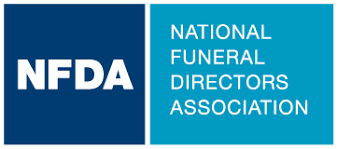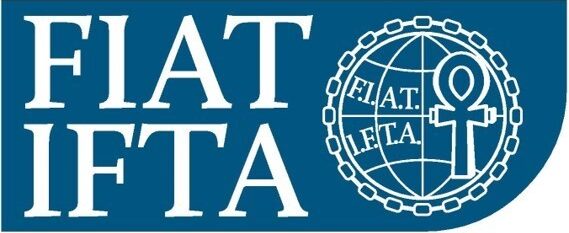What to do when someone dies
When someone dies, it can feel overwhelming - not only are you and your loved ones coming to terms with their death, there are also practical steps that need to be taken and arrangements to be made for the person who has died. Here you will find information on the steps that need to be taken when a person dies.
There are different processes depending on the circumstances and we have broken down each potential scenario to best support you.
Before anything else can move forward, the below 3 steps are required for each death in the United Kingdom:
Receive Medical Certificate of Cause of Death from a Doctor, usually in a sealed envelope. This document is highly important as without this the death cannot be registered.
Register the death in the country where the death occurred, guidance on who can do this, where to do this and what to bring with you can be found here. The death must be registered within 5 days in England and Wales.
Begin to arrange the funeral and plan out what you and perhaps the person who has died would want this to look like. There are many options to choose from, you can contact us for Direct Cremation support or alternatively feel free to contact us to discuss your wishes and we can point you in the right direction. At this stage, the Funeral Director you choose can support with transporting the person who has died into their care.
Medical Certificate
A Medical Certificate of Cause of Death is a certificate that is issued by a Doctor shortly after the death has occurred and will include; the name of the person who has died, their date of birth, date of death or age, the cause and place of death. This document will be given to you in a sealed envelope and you will need it to register the death so keep it safe.
Sometimes it is not possible to obtain the Medical Certificate of Cause of Death straight away, this will be because the death may be with the Coroner due to the circumstances. If this is the case, the Coroner will need to further investigate to obtain a cause of death, sometimes by completing a post-mortem. This will delay the process slightly but once completed you will have all you need to continue with funeral arrangements.
If you plan on opting for a cremation, you will need to advise the GP of the person who has died as they will need to complete some paperwork. This will be verified by a second Doctor who will also need to contact you so be prepared for this.
It is important to understand each situation will require a slightly different approach, for guidance on your situation read the information which best describes your situation below.
What to do when somebody has died...
At hospital?
When someone dies in a hospital, the next of kin or close family members will be notified immediately by the ward staff or the hospital bereavement officer. They will advise on the situation and what will happen next.
If the cause of death is known, then the Doctor will issue the Medical Certificate of Cause of Death to you in order to register the death. If the death is unknown then the Doctor will refer the death to the Coroner. The Coroner will then investigate to determine the cause of death and may need to conduct a post-mortem to obtain this. It is important to understand no funeral arrangements can begin until this process is complete. You may contact a funeral director but no dates or arrangements should be fixed until the Coroner completes their work.
If you are going to opt for cremation rather than burial then you must let the Doctor know so they can prepare the relevant paperwork for you to give to your funeral director.
In a care home?
When someone dies in a care home, the staff at the care home will notify you immediately and will guide you through the next steps which they are trained to do. Following this, different things will happen depending on whether or not the death was expected.
When the person has died expectantly:
The care home will likely contact the GP and the death will be verified. The Doctor will issue a Medical Certificate of Cause of Death if they have seen the person within the last 14 days or if the death was expected.
When the person has died unexpectantly:
The care home staff will contact the Coroner if the death was unexpected and will notify you immediately to notify you of the death too. The Coroner will then investigate to determine the cause of death and will sometimes need to conduct a post-mortem to obtain this. It is important to understand no funeral arrangements can begin until this process is complete. You may contact a funeral director but no dates or arrangements should be fixed until the coroner completes their work.
At home?
When the Person has died expectantly:
When the person has died at home during the day and the death was expected, for example from a terminal illness, then you should contact the person’s GP and they can help you. Alternatively, you can contact the NHS Helpline by calling 111 and they can also help. Contacting either the person’s GP or the NHS 111 helpline must be done as soon as possible.
When the person has died at home during the night and the death was expected, for example from a terminal illness, then you should contact the NHS Helpline by calling 111 as soon as possible.
When the person has died unexpectantly:
If somebody has died at home and the death was unexpected then you must immediately call the police and ambulance service by calling 999. Explain the situation to them clearly and they can then provide you with the necessary guidance. It is important you call immediately and listen to their guidance carefully as they may suggest a possibility of resuscitation.
Other than for attempting resuscitation, you should leave the area as clear as possible for investigation purposes. The police will arrive and will organise a funeral director to collect the person who has died and transport into the care of the Coroner. The Coroner will then investigate to determine the cause of death and will sometimes need to conduct a post-mortem to obtain this. It is important to understand no funeral arrangements can begin until this process is complete. You may contact a funeral director but no dates or arrangements should be fixed until the coroner completes their work.
Unexpectedly?
It can be a very distressing situation if you witness a sudden or unexpected death whatever the circumstances. There is a lot to consider and we have put the following information together to support anyone in this situation.
An unexpected death could be due to a number of reasons such as an accident, an illness or even natural causes but at an unexpected time. If you witness somebody dying unexpectantly you must call 999 immediately. Explain the situation to them clearly and they can then provide you with the necessary guidance. It is important you call immediately and listen to their guidance carefully as they may suggest a possibility of resuscitation.
Other than for attempting resuscitation, you should leave the area as clear as possible for investigation purposes. The police will arrive and will organise a funeral director to collect the person who has died and transport into the care of the Coroner. The Coroner will then investigate to determine the cause of death and will sometimes need to conduct a post-mortem to obtain this. It is important to understand no funeral arrangements can begin until this process is complete. You may contact a funeral director but no dates or arrangements should be fixed until the coroner completes their work.
When is a Coroner involved?
There are many different reasons as to why a Coroner might be involved, all are to determine the exact cause of death. These reasons could include, but are not limited to the following:
The person died suddenly and unexplainably
The person died as a result of violence or the death was unnatural
The person had not seen the Doctor/GP in the last 14 days
The person died during an operation
There are reasons in addition to the above which could instigate a Coroner’s investigation. You will need to follow the guidance of the Coroner if they deem it necessary to carry out a post-mortem. Once this is complete, if the cause of death is now known the Coroner will issue a ‘Form 100B’ (also referred to as the ‘Pink Form’). If the funeral is to be a cremation the Coroner will also issue a Certificate of Coroner – Form Cremation 6 for Cremation.
An Inquest will be required if following a post mortem a clear cause of death can still not be determined or if the death was as a result of violence, it was an unnatural death, or if the person died in prison or in police custody. An inquest is a legal investigation to look through facts and evidence in order to determine the cause of death. The inquest will be open to the public and until the inquest is complete the Coroner can issue an interim death certificate to be used until a cause of death is determined. This will allow you to move forward with notifying some organisations about the death until the death certificate is available. Following an inquest, the Coroner will be able to issue the Form 100B (‘Pink form’) and the funeral can then be conducted.
What to do when somebody has died overseas?
It can be very daunting when someone dies overseas and there can be a whole number of things to do depending on the country where the person has died. This guidance, we hope, can help you should you find yourself in this situation.
If the person was staying in a resort then it is recommended to speak with the staff who will be able to help you. They will likely speak to the local police or follow the procedures required in that country. If the person was travelling alone then the British Consulate or Foreign and Commonwealth Office should be notified quickly and will then notify you about the death as soon as they can. It is important to speak to the person’s travel insurance provider if they had this cover, often repatriation or funeral arrangements will be included within the policy coverage and they will be able to support you.
The death must be registered in the country of death and a death cannot be registered more than once, you can do this through a funeral director locally, a repatriation company or through the nearest British embassy/consulate.
There are many repatriation companies in the UK who can operate internationally, supporting with repatriation back to the UK or handling funeral arrangements overseas. Our sister company Homeland International can lend support with repatriation and can operate anywhere worldwide, alternatively you can contact the nearest British embassy/consulate for a list of local funeral directors who can help.
Organisations who are happy to help
You may not always know the person who has died, although you may be with a family member who dies, no matter the situation there is help available to you, you can search online to find a helpline who will be able to support you. Here are some organisations who are happy to help:
Bereavement Trust Helpline
0800 435 455 6pm-10pm every evening
www.bereavement-trust.org.uk
Support for anyone who has been bereaved.
Child Bereavement Charity
0800 02 888 40
www.childbereavementuk.org
Support for bereaved families, online discussion forums, information.
Winston's Wish
08088 020 021
www.winstonswish.org
Support for bereaved children and young people.
BrakeCare
0808 8000 401
www.brake.org.uk
Helpline for people bereaved or injured in a road crash, listening ear and information on practical matters, and local counselling and trauma therapy services. Also offers assistance to police officers and other professionals.
Cruse Bereavement Care: Hope
0808 808 1677
www.hopeagain.org.uk
Helpline and other support for young people aged 12-18 following a bereavement. Also provide email and online support. Also group work with young people.
SAMM - Support After Murder and Manslaughter
0121 472 2912 / 0845 872 3440
www.samm.org.uk
Telephone support line for families and friends of homicide victims.
SCARD - Support & Care After Road Death & Injury
Helpline: 0345 1235542
www.scard.org.uk
To alleviate distress to people who have been bereaved, injured or affected by a road death or injury. SCARD has been set up by a family who sadly lost their 27 year old son in a car accident. The service provides emotional and practical support, a helpline, support groups, meetings and personal support. They can help assist and accompany affected families, individuals or friends to Crown, Magistrates, or Coroners Courts. They can provide independent and informative information with regard to the judicia system, provide access to free initial legal help, and can assist bereaved families gaining access to free counselling within and outside of the organisation.
Cruse Bereavement Care
Helpline 0808 808 1677
www.cruse.org.uk
Provides support services for people who have been bereaved. Helpline offering listening support and practical advice related to bereavement, including dealing with an estate, debt and arranging a funeral. Puts people in touch with local cruse branches that provide a range of services including individual and group support.




